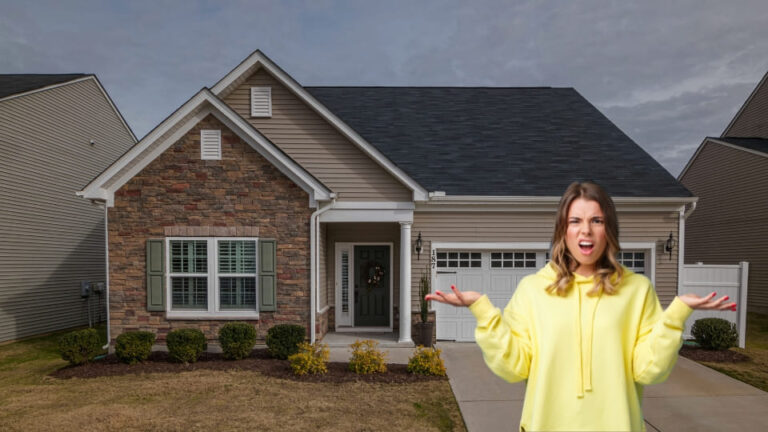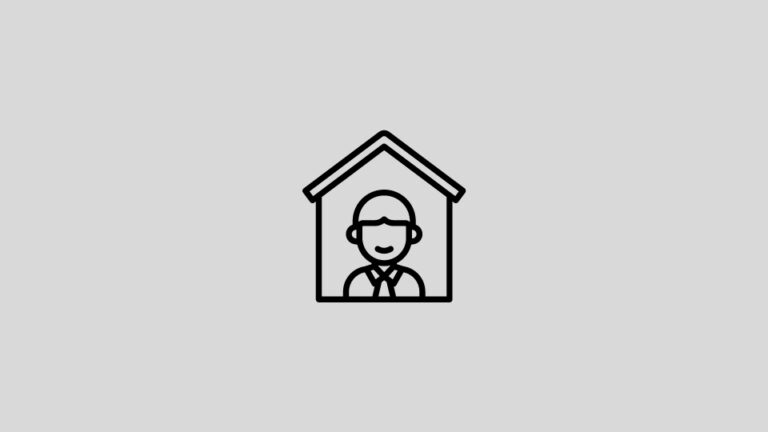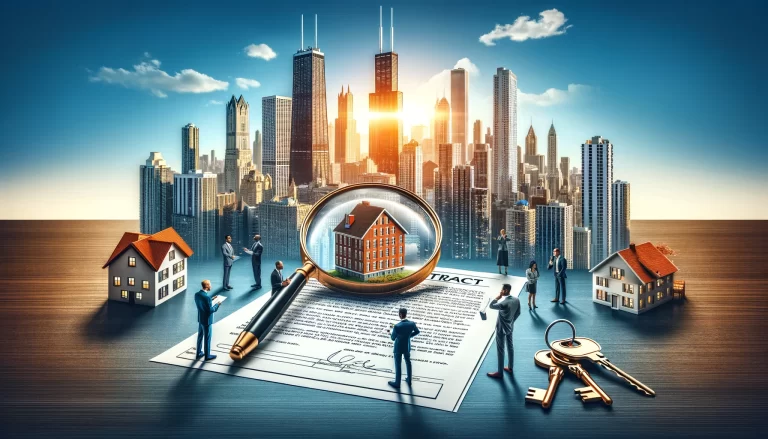Are Apartments Safer than Houses
Are apartments more secure than houses? Many people ask this question, especially when considering a new living situation. The answer is complex because multiple forces are at work. Personality risk tolerance, location, and security measures are just a few of the factors that can influence apartment or house safety.
But, regarding safety, apartments have several advantages over houses. They usually provide restricted entry and security features, including locking doors, cameras, and gated entry. Furthermore, apartments are frequently located in regions with nearby neighbors, which helps dissuade potential robbers.
In this post, we’ll look at the characteristics that make apartments safer than houses and how you might improve your apartment’s security.
Are Apartments Safer than Houses?
When it comes to the question of whether apartments are safer than houses, it depends on several factors, such as location, security features, and personal risk tolerance. Apartments generally have controlled entry and superior building security, but houses may offer more privacy and less shared public space.
However, you can increase your apartment’s safety by installing security cameras and participating in neighborhood watch programs. Whether apartments or houses are safer depends on individual circumstances, so assessing your situation and taking necessary precautions is important.
Factors that Make Apartments Safer
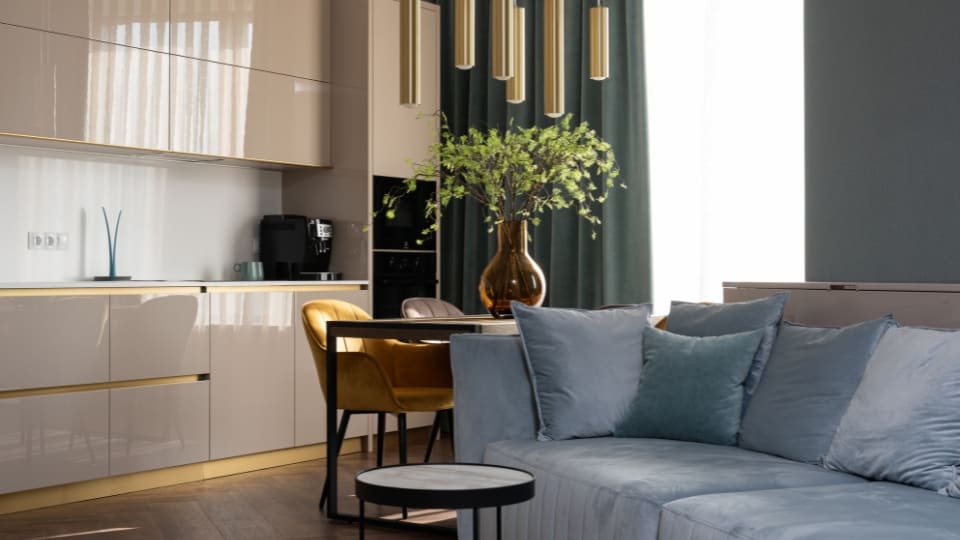
Apartments have various advantages over houses in terms of safety. Apartments can give a level of protection typical homes cannot equal, from restricted entrance and security systems to installed security services. Let’s take a closer look at some elements contributing to apartment safety.
Controlled entry and security features
One of the major benefits of apartment living is the controlled entrance and security features. Several apartments have closed gates, corridors, and front doors that require a key or a security code to open. Furthermore, many apartments have security cameras installed, which can dissuade burglars from breaking in.
Closer proximity to neighbors
Another advantage of living in an apartment is being closer to your neighbors. With so many people crammed into such a tight area, it’s easy to notice when something needs to be corrected. If you hear something suspicious or see someone who shouldn’t be there, immediately notify your neighbors or the building’s security team.
Installed security services
Several apartment complexes collaborate with local security services to protect their tenants. These services may include patrolling the complex, reacting to emergencies, and giving support 24 hours a day, seven days a week.
Locked gates and hallways
Several apartment buildings have locked gates and halls. These can assist in keeping unauthorized people out of the building and give occupants an added layer of security.
Fire safety requirements
Apartments must meet strict fire safety criteria, such as installing smoke detectors and fire extinguishers. Furthermore, many apartment buildings feature sprinkler systems and fire escapes to ensure inhabitants can escape if a fire breaks out.
Better night lighting
Finally, apartments frequently have greater night lighting than single-family residences. Several apartment complexes have well-lit parking lots, hallways, and communal spaces, which can dissuade burglars from breaking in.
Comparison of Apartments and Houses
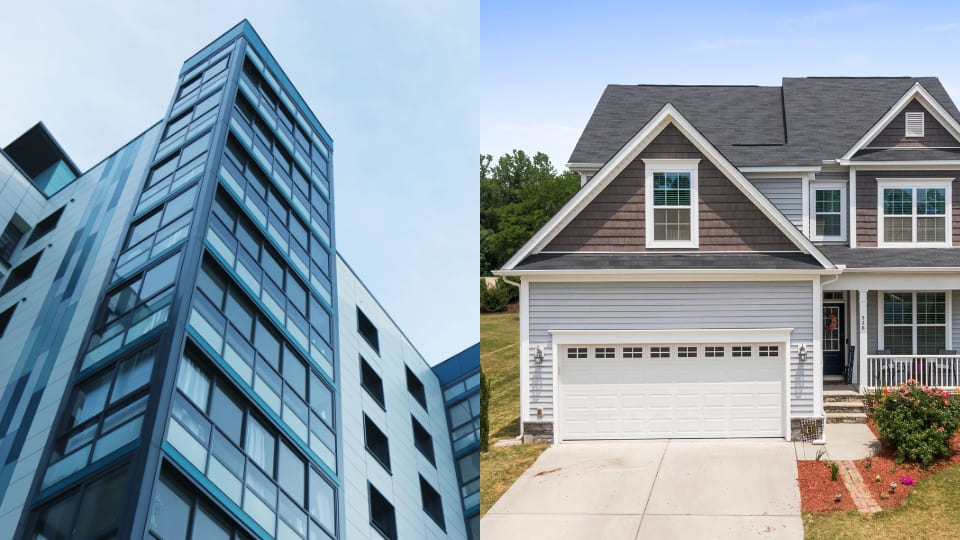
Safety is frequently a major factor when deciding between an apartment and a house. Let’s look at the differences between apartments and houses in more detail.
Burglar accessibility
The absence of shared entryways is one advantage of living in a house. With fewer entrance points, robbers may find it more difficult to access the residence. On the other hand, houses are frequently located in locations with larger lots and greater space between neighbors, making them more appealing targets for burglars.
On the other hand, apartments have regulated entryways, making it more difficult for criminals to access the complex. Also, because so many people live in such a confined space, it is simpler to notice when someone who shouldn’t be there tries to enter the building.
Shared public space
The shared public space is one downside of apartment living. Maintaining a sense of privacy might be more difficult with so many people living in such a tiny space. Furthermore, if shared public places are not effectively supervised, they can become a breeding ground for crime.
On the other hand, houses have private outside spaces, such as backyards and front lawns, which can be more secure and provide a sense of seclusion. These places, however, can be more difficult to monitor, especially if the property is big.
Superior building security
Another advantage of apartment living is improved building security. Locked gates, security cameras, and on-site security officers are common security elements in apartment complexes. Furthermore, apartments are frequently located in regions where neighbors are nearby, which helps dissuade potential robbers.
Houses, however, frequently rely on individual security measures such as alarm systems and locking doors to defend the property. While these precautions have the potential to be effective, they may give a different level of security than an apartment complex.
Regarding safety, both apartments and houses offer advantages and downsides. While apartments have regulated entryways, are closer to neighbors, and have better building security, houses have more private outdoor spaces and less shared public space. When deciding between an apartment and a house, it’s critical to carefully consider these variables to determine which living environment is best for you.
How to Make Apartments Safer
Apartment living has several advantages, such as proximity to amenities and enhanced security features. However, you may take extra actions to make your residence even more secure. Here are some suggestions to make your apartment more secure.
Installation of security cameras
Installing security cameras is one approach to improving the security of your apartment. Cameras not only dissuade potential burglars but also give evidence in the event of a break-in. Several current security systems include high-resolution cameras that can be accessed remotely via smartphone or computer.
Use of deadbolt locks
Using deadbolt locks is another technique to improve the security of your flat. Deadbolt locks are more difficult to pick than ordinary ones, adding a degree of security to your residence. Also, use a peephole or intercom system to confirm the identity of anyone attempting to enter the flat.
Participation in neighborhood watch programs
Joining in a neighborhood watch program might help improve your apartment’s security. A neighborhood watch program entails a group of residents who collaborate to keep an eye out for suspicious behavior in the neighborhood. You can make your community safer by participating in a neighborhood watch program.
Keeping the apartment clean and organized
Cleaning and organizing your residence can help improve its security. A messy flat might provide hiding areas for criminals, allowing them to enter undetected. A clean and well-kept flat is also less likely to attract unwelcome attention from possible robbers.
You may take numerous methods to make your residence even more secure. You can increase the security of your living space and enjoy the peace of mind that comes with knowing you’re doing everything you can to protect yourself and your belongings by installing security cameras, using deadbolt locks, participating in neighborhood watch programs, and keeping your apartment clean and organized.
Conclusion
To summarize, there are various elements to consider when comparing the safety of flats vs. houses, including location, security features, and personal risk tolerance. Houses may offer more privacy and less shared public space than apartments, which often have stronger building security and regulated entry. Apartment tenants can, however, take actions to improve the security of their living area, such as installing security cameras and participating in neighborhood watch programs.
Individual circumstances will ultimately determine whether apartments or houses are safer. However, you can make your flat as safe and secure as possible by taking proactive measures and being aware of potential threats. Always prioritize your safety and the safety of others, and take appropriate steps to establish a safe living environment.

